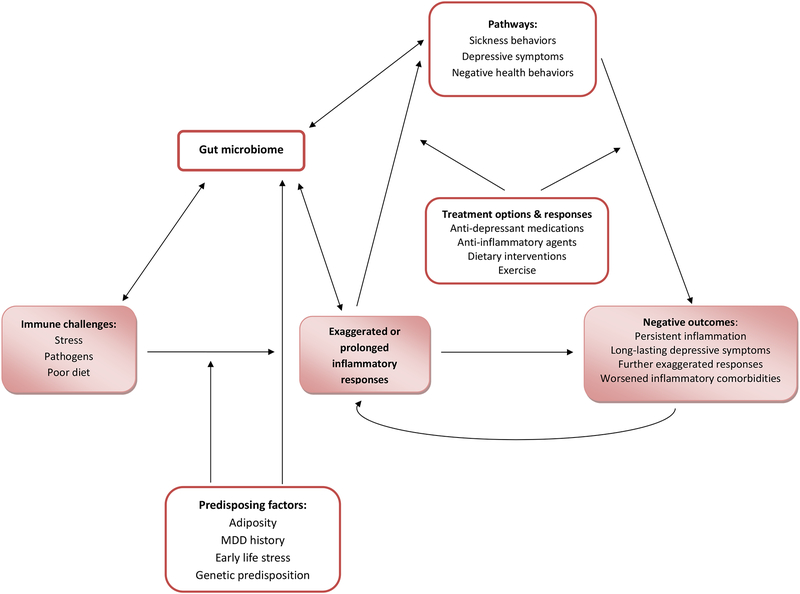Figure 1.
This illustration depicts factors that increase risk for inflammatory overresponsiveness, as well as pathways leading to heightened inflammation, depression, and health risks. When combined with predisposing factors (moderators), immune challenges can lead to exaggerated or prolonged inflammatory responses. The resulting sickness behaviors (e.g., pain, fatigue, sleep disturbance), depressive symptoms, and negative health behaviors (e.g., poor diet) may act as mediating pathways that lead to further unrestrained inflammation. Depression, childhood adversity, stressors, and diet can all influence the gut microbiome and promote intestinal permeability, another pathway to enhanced inflammatory responses. Ultimately, this overresponsiveness could carry important physical and mental health risks, and could amplify inflammatory responses to subsequent immune challenges. This pattern suggests novel treatment options that could halt both exaggerated inflammation and depressive symptoms, and may also help to pinpoint which patients are expected to benefit from certain treatments.

